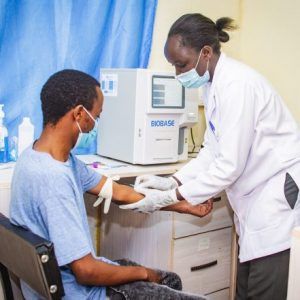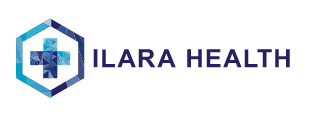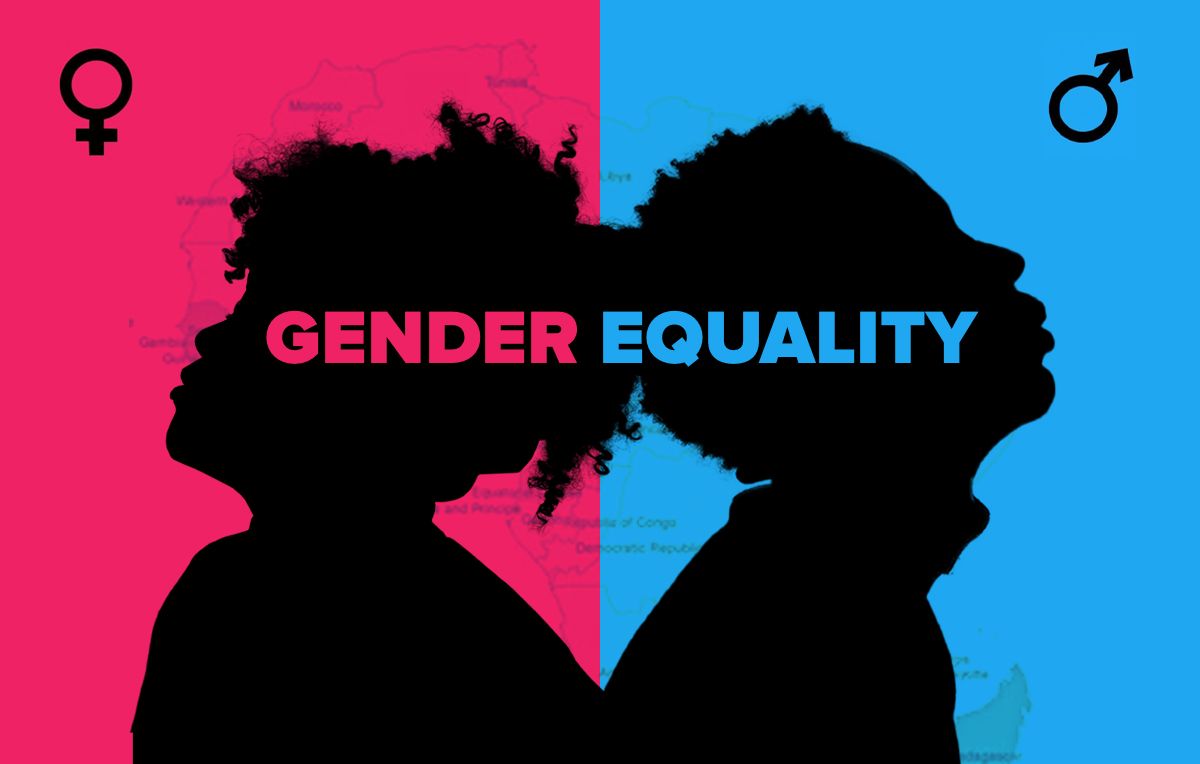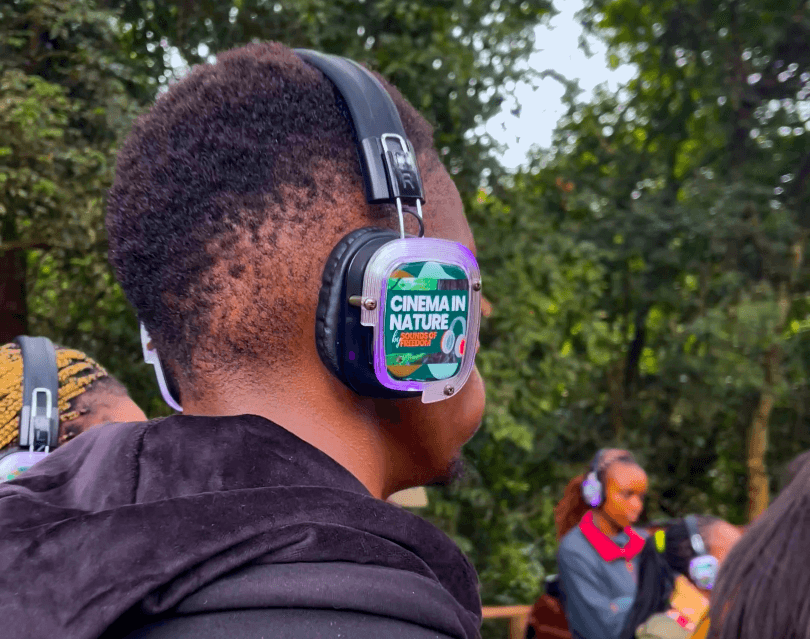The 7th of April is designated as World Health Day. Each year, this day draws attention to specific health-related conversations of concern to people all over the world. The theme for 2021 is "Building a fairer, healthier world". Our topic of conversation today will be self-diagnosis.
The internet is a marvel. It has changed our way of living, and we can now access information from wherever we are, whenever we want. Just a quick typing and surfing on our digital gadgets and a world of information is ours, anything you want to know lights up your screen. But could this pose a danger to health in any way? We’ll get back to that in a second.
Debates on whether the internet is good or bad have been ongoing, and they won’t come to an end any time soon, given we all have different perspectives. The truth is, the internet mirrors the user; it is how you choose to use it that could either empower you or ruin you.
Back to the impact of the internet on your health. The answer is yes, it could pose some dangers. How? You may ask. Well, that is the question this article seeks to answer.
What is self-diagnosis?
Simply put, self-diagnosis is the process of playing doctor and identifying medical conditions in yourself. You analyze your symptoms, diagnose, and decide what the problem is without consulting a licensed medical practitioner. Does this sound like something you've done?
Ilara Health was keen to find out how common this trend is, and asked a few Kenyans the question: Do you sometimes self-diagnose, and if yes, why? Here are the answers and reasons they gave:
- High cost involved with consultation and lab fees
- Unless the symptoms are serious, it’s quicker to walk into a pharmacy and buy drugs over the counter
- Self-diagnosis saves time spent on the queue in the hospital
As to the question of how often Kenyans self-diagnose, Steve Mureithi, a financial analyst said, “A lot. My girlfriend is a medical student and whenever I feel unwell I call her and she diagnoses me. I then go to a nearby pharmacy and get drugs.”
Another Kenyan said, “Unless I am dying, I do not go to see a doctor. I consult Dr Google. It’s easier, and no costs are involved.”
Among the 10 random people we asked this question, only one said they do not self-diagnose. Kenneth Okumu, a creative non-fiction writer, "I take time to observe the symptoms, and if they persist, I go to see a doctor. The only time I self-diagnose is if it’s at night and I need relief to sleep through the night; I then make a point of seeing a doctor in the morning”, Okumu said.
We also had a one on one chat with Chris, a trained pharmacist who runs a pharmacy at Kahawa West, Nairobi. Chris confirmed that 60% of the people walking into his business have self-diagnosed. According to Chris, when it comes to diagnosing illnesses, most people have learned what they know from online sources or friends.
“They always walk in and ask for a specific medicine, as one would walk into a shop and ask for bread,” Chris revealed. "I have to ask them what they are trying to treat, or who the medicine is for because they may take a drug and end up with severe side effects which would have been avoided if a medical practitioner was consulted.”
The dangers of self-diagnosing
1. Misinterpretation, leading to ineffective drugs
While some symptoms like headaches or stuffy noses could be easily handled at home or over the counter, the question would be: did the self-diagnosis treat the problem, or only reduce severity for a while? That is why it is advisable to see a doctor, in cases where easily accessible painkillers fail to do the job.
Self-diagnosis could lead to misinterpretation of the symptoms. There are over 10,000 diseases in the world, and a good number of these have overlapping symptoms. In light of that, chances of misinterpreting and therefore taking ineffective drugs are higher.
2. Patients react differently
Body systems react differently to different treatments. That is why some drugs are inadvisable for patients with certain conditions. You can buy medicine over the counter to treat a disease you have self-detected, only to end up stirring severe side effects.
3. Wrong drug combination
There are drugs that should not be combined or mixed. A licensed medical practitioner would be keen to figure out your medical history and know what drugs you may or may not combine. Self-diagnosis could lead you into the dangerous trap of taking together two drugs of the wrong combination to treat a problem, harming your health further.
4. Unnecessary costs
More often than not, people self-diagnose and buy expensive medicine over the counter. It is only when the problem persists that they consult a licensed doctor. An entirely different medication path is then started. The patient ends up spending more on medicine than they would have if they had consulted the doctor first.
5. Could lead to unnecessary stress
Dr Google, as one Kenyan we talked to nicknamed him, is a doctor of doom. As earlier mentioned in this article, many diseases have overlapping symptoms. You could be having a headache due to eye strain, but then the first information you see on Google for “persistent headache” says you have a brain tumour or a disease you can’t even pronounce. The result would be stress and despair. Not to say those simple symptoms could not be a result of serious problems, but it is advisable to see a doctor for an accurate diagnosis.
Affordable tech-powered diagnostics for Africa
To thwart risk factors, proper diagnostics are important. But why not self-diagnose, given that in Africa, common diagnostics are not easily accessible and affordable, and most people today struggle to access even basic blood tests?
That’s where Ilara Health comes in. We redefine healthcare in Kenya and Africa. We bring the most needed tests to doctor’s offices in urban and peri-urban settings. Through convenient payment methods, doctors and even trained pharmacists can now own integrated point-of-care diagnostics devices.
This has helped ensure the convenient diagnosis of non-communicable diseases in Kenya's primary care settings, at affordable prices. You do not need to self-diagnose anymore.
Through partnering with us, doctors acquire our devices. As a result, we enable:
- Faster access to tests doctors need, with results available in less than ten minutes
- Evidence-based treatment accessible to all
- Better and affordable healthcare for everyone
Visit our website and check out our partner clinics where you can go for affordable tests.
Also read: World TB Day: How Ilara Health Is Leveraging Technology to Tackle Abdominal Tuberculosis





